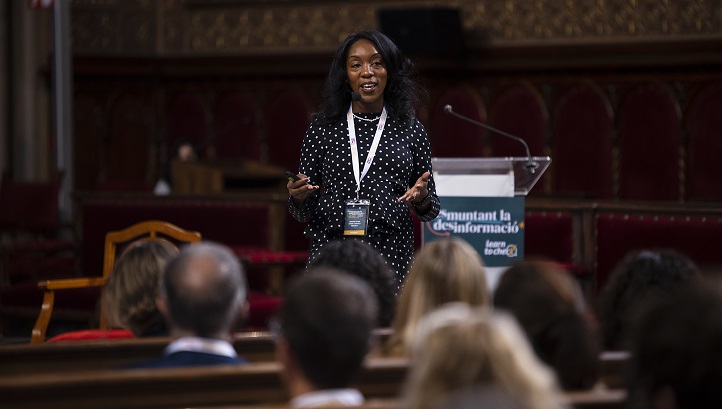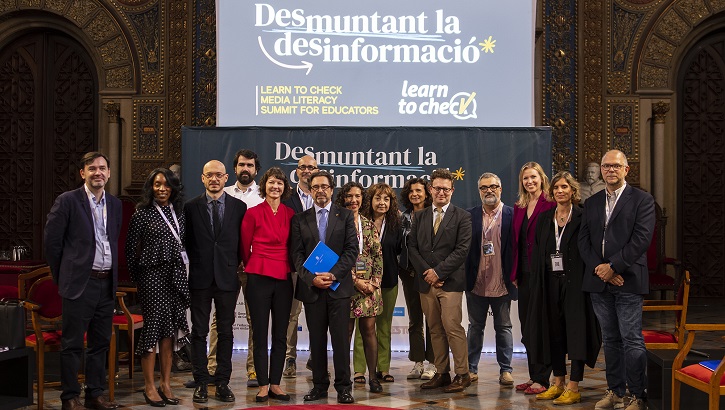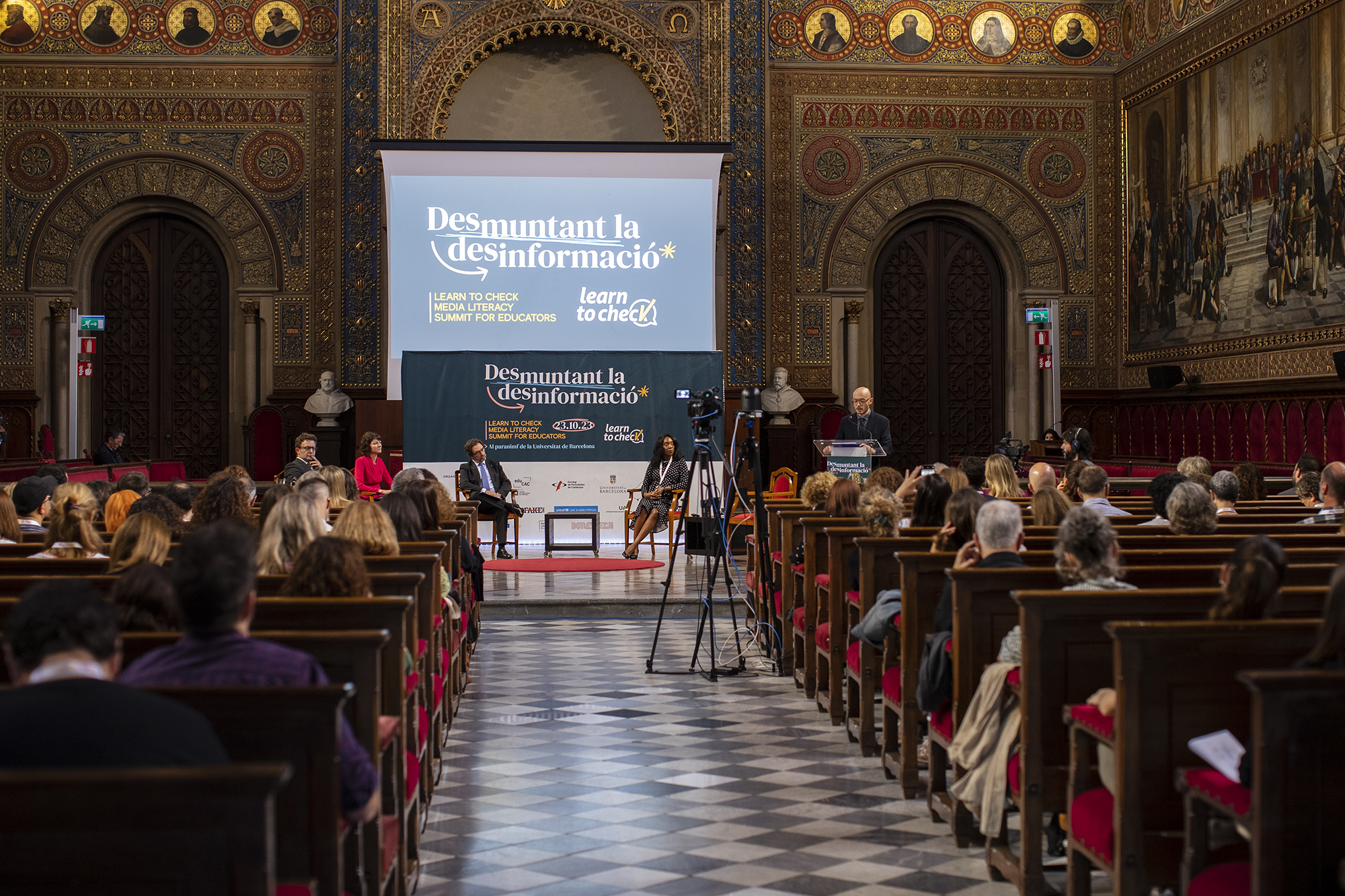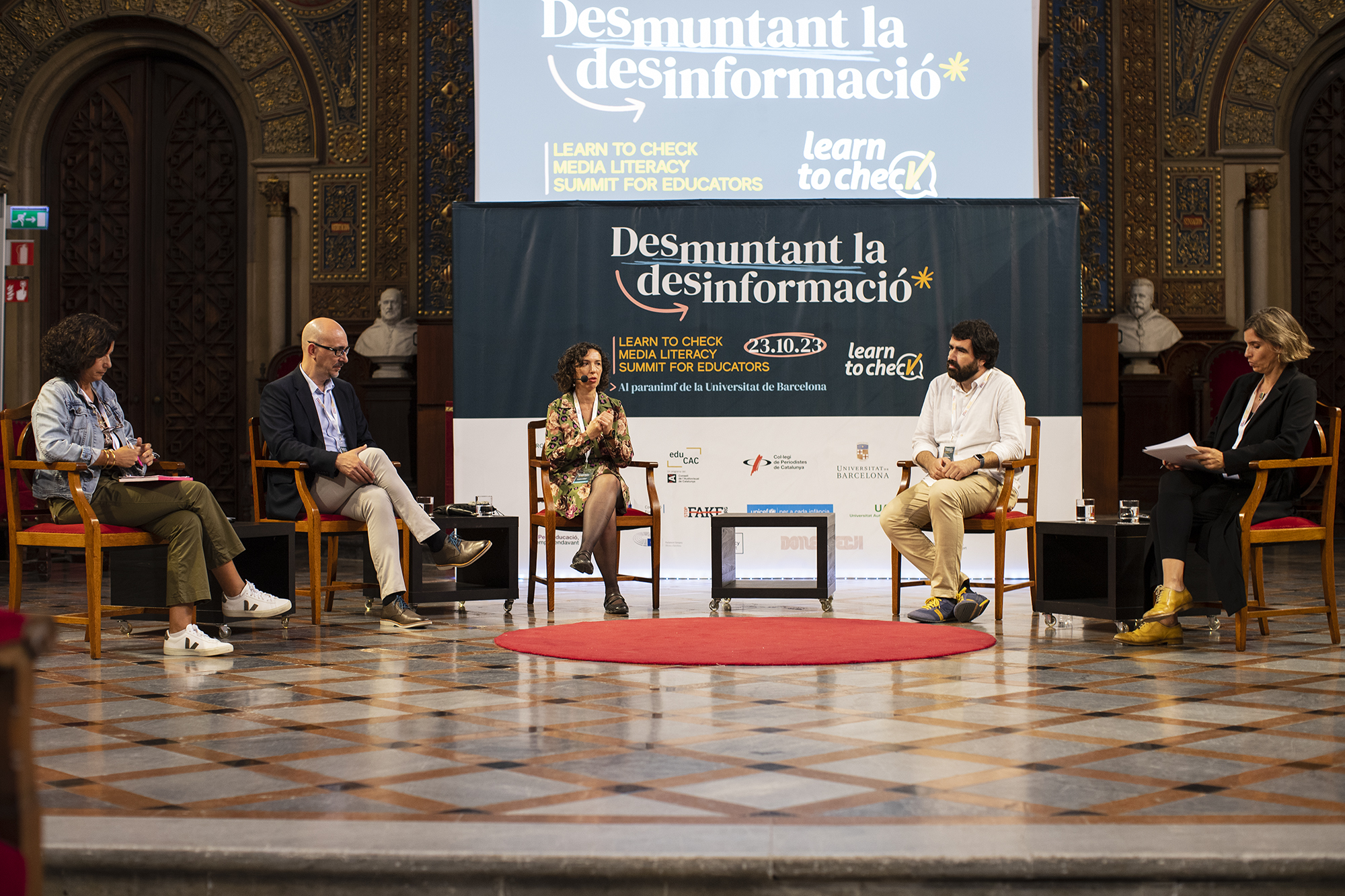"Students are living in the most complicated information landscape in history"

Yesterday, 23 October, the Paranymph Hall of the Historic Building hosted the conference “Dismantling disinformation. Learn to check media literacy summit for educators”, organized by the University of Barcelona, the Escola de Periodistes de Catalunya (School of Journalism of Catalonia), the Audiovisual Council of Catalonia and Learn to Check, as part of the Global Media and Information Literacy Week. The opening conference was given by Ebonee Otoo, vice-president for Educators Engagement at the News Literacy Project, US-based entity that aims to help differentiate credible news from dubious news, and to reinforce the role of free journalism as an engine of a healthy democracy. "Students are living in the most complicated information landscape in history", said Otoo.

Yesterday, 23 October, the Paranymph Hall of the Historic Building hosted the conference “Dismantling disinformation. Learn to check media literacy summit for educators”, organized by the University of Barcelona, the Escola de Periodistes de Catalunya (School of Journalism of Catalonia), the Audiovisual Council of Catalonia and Learn to Check, as part of the Global Media and Information Literacy Week. The opening conference was given by Ebonee Otoo, vice-president for Educators Engagement at the News Literacy Project, US-based entity that aims to help differentiate credible news from dubious news, and to reinforce the role of free journalism as an engine of a healthy democracy. "Students are living in the most complicated information landscape in history", said Otoo.
“Misinformation is a global crisis —she said—, but we want to be part of the solution. Young people have a right to information and news literacy, if we don't put them at a disadvantage" she continued, citing the example that "one out of five TikTok videos contains misinformation".
Otoo valued the fundamental role of educators and explained the different programmes that the News Literacy Project works on: from platforms such as Checkology, which helps to understand the importance of a free press, to newsletters with educational resources or programmes for the general public to analyse the false rumours that circulate around them.
One of the most serious threats to democracy
During the opening of the conference, Sergi Barrera, head of the European Parliament Office in Barcelona, defended that "the role of information professionals, who are the ones who put the news in context, is essential". Afterwards, Manuel Szapiro, Director of the European Commission Representation in Barcelona, stated that the European Union is "committed to the fight against disinformation through tools such as algorithmic transparency, refutation networks, verification and media research and education projects".
Rian Harris, Minister-Counsellor of the US Embassy in Madrid, warned that disinformation is "one of the most serious threats to democracies". The Rector of the UB, Joan Guàrdia, stated that the University can contribute to combating lies and disinformation "with what it knows how to do: educate", and emphasised that the etymology of the word educate is related to the idea of caring, in this case caring for people in the face of the dangers of disinformation.
At the round table "The challenges of media education in Catalonia", Montse Jiménez, pedagogical director of the Vedruna-Prats de la Carrera school (Palafrugell), recalled that "for students, being informed is a right", and stated that currently there are "new possibilities, but there are also risks: we have young people who do not distinguish a fact from an opinion or an advertisement".
Àlex Hinojo, co-founder of the Digital Rights project and language activist, called for "the value of the word; not to be afraid of the text". "We have to go beyond the ego culture and promote a more civic internet", he said. Nereida Carrillo, co-founder and president of Learn to Check and lecturer of journalism at the Autonomous University of Barcelona, said that "media education must be systemic, for everyone, collaborative and enthusiastic". "Disinformation is hopeless and does not allow us to think clearly," she said.
Nacho Guadix, Head of Education and Children's Digital Rights at UNICEF Spain, said that misinformation "is a threat and that our rights as citizens are at risk", and noted that misinformation is also linked to mental health problems.
Laura Pinyol, advisor and coordinator of the Commission for Relations with Society, Children, Gender and Education in Communication of the Audiovisual Council of Catalonia, recalled that disinformation is experienced by all people, not just children and young people. She stated that to combat it, "we need a very communitarian vision, involving various institutions and also large companies".
The session ended with two lectures by Roger Cuartielles and Cristina Garde, from Learn to Check, and Yevhen Fedchenko, director of the Mohyla School of Journalism in Kyiv and co-founder and editor-in-chief of the fact-checking website stopfake.org, as well as workshops with educational pills.
Multimedia gallery

Group photo of the conference participants.

The conference took place within the framework of World Media and Information Literacy Week.

